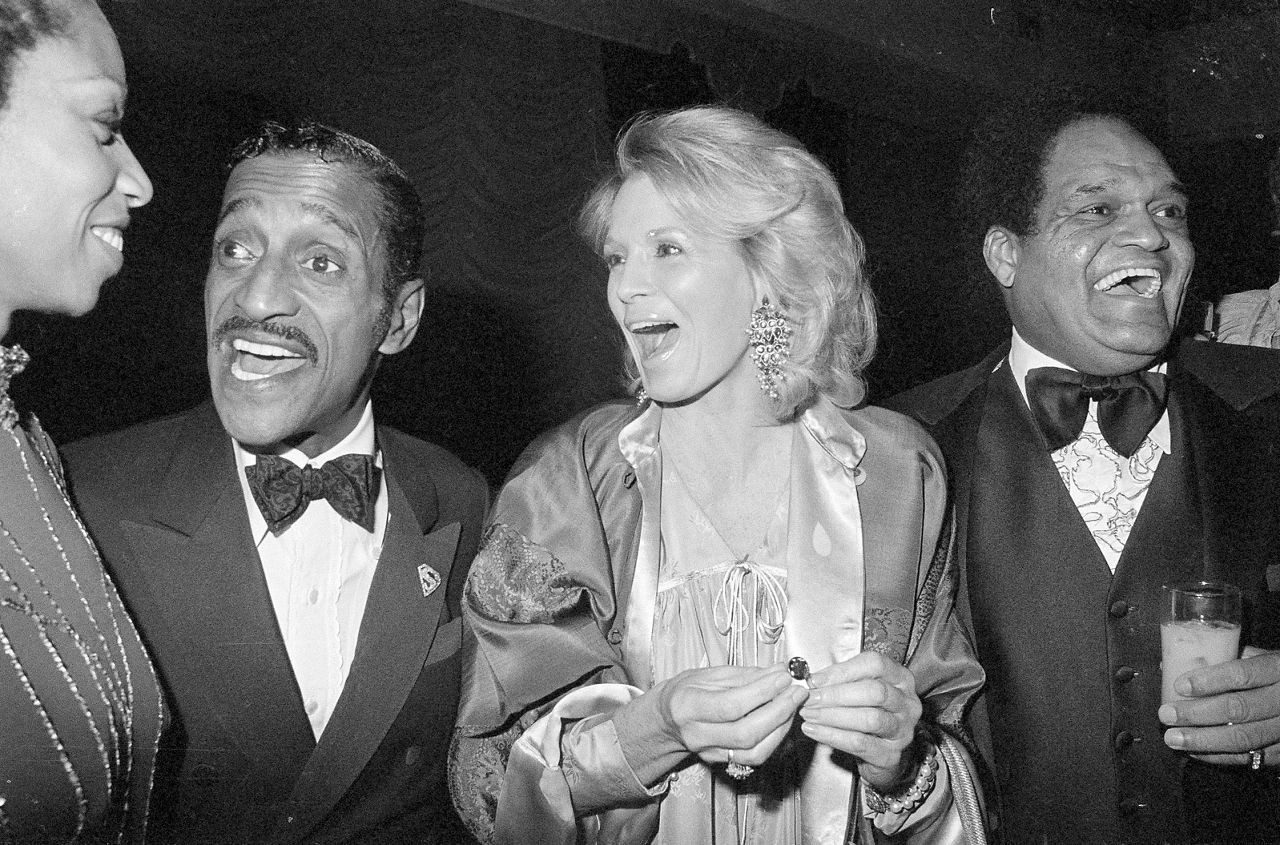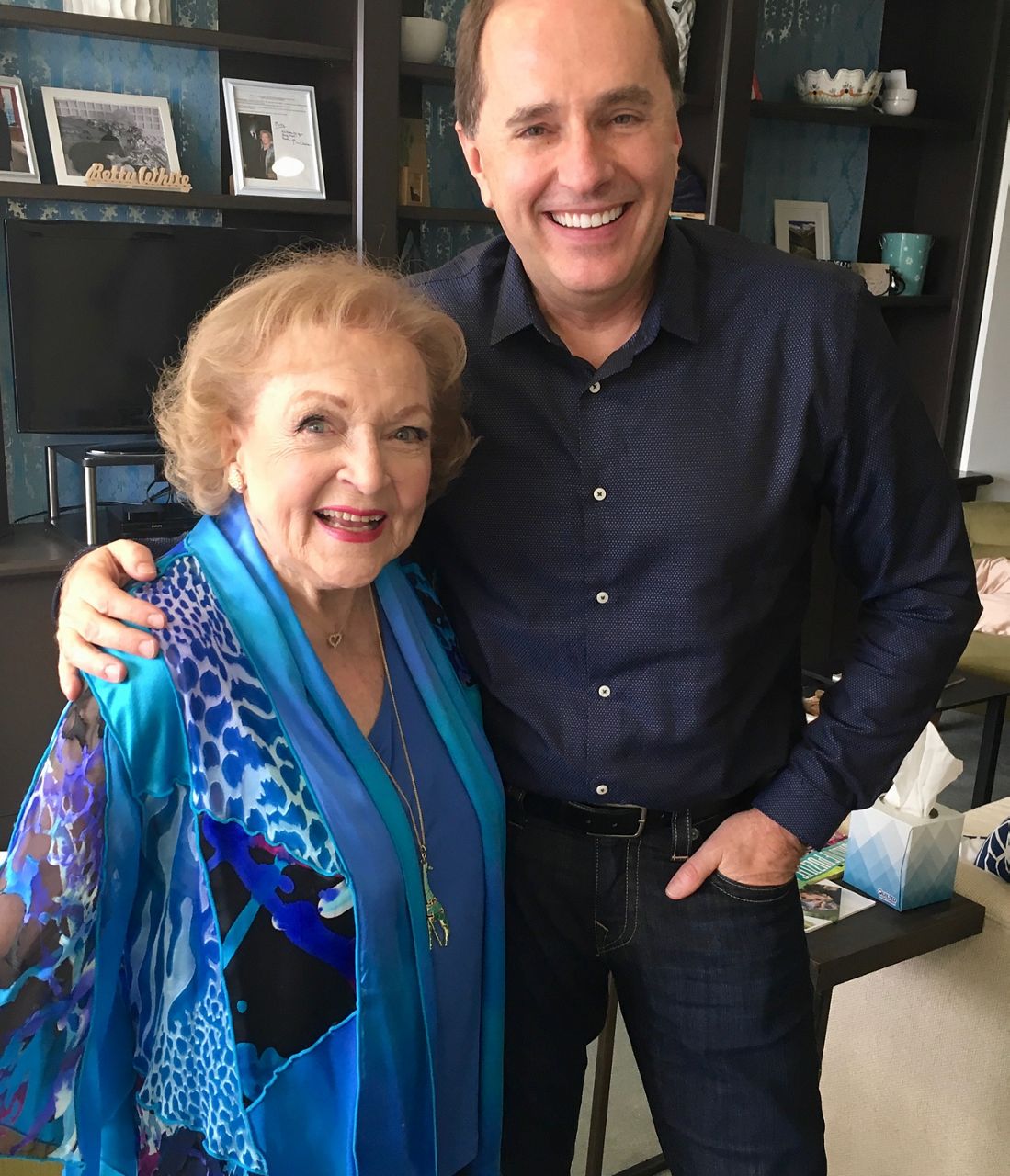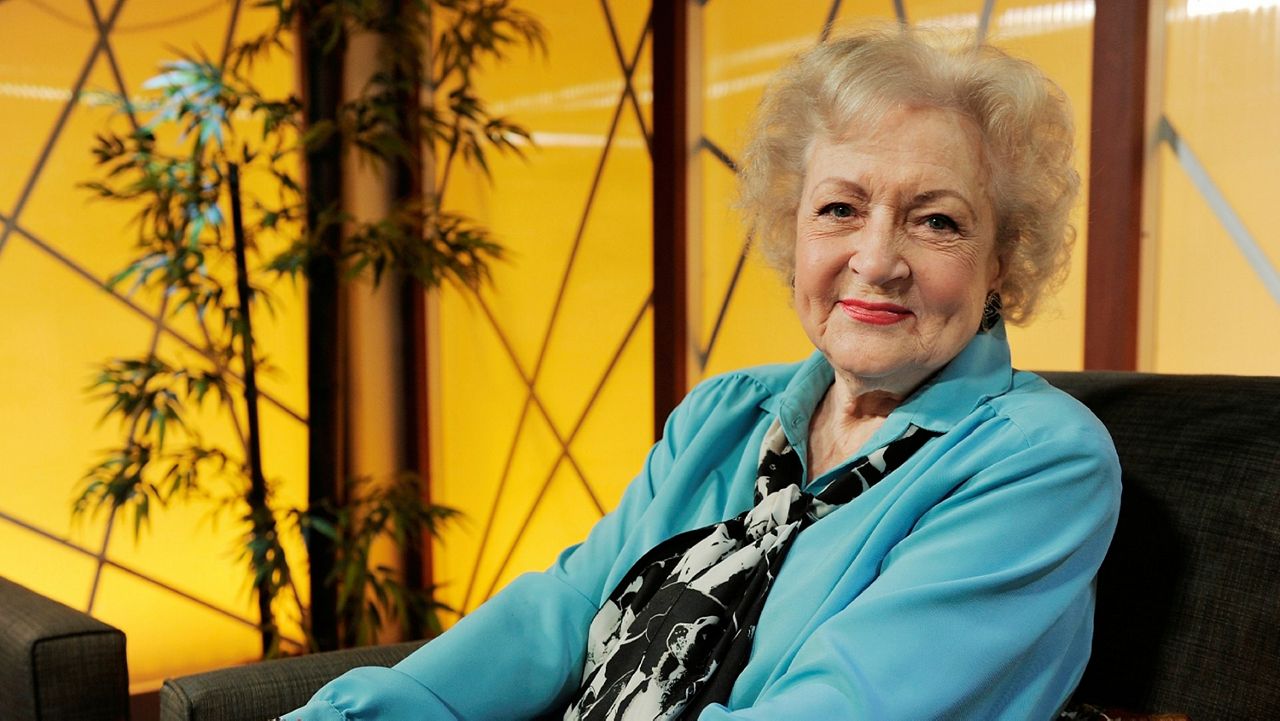(Editor’s note: Second of a three-part series on Wisconsin natives Steve Boettcher and Mike Trinklein, an unlikely pair of University of Wisconsin-Oshkosh graduates who chronicled the history of television through the PBS series “Pioneers of Television,” speaking with hundreds of Hollywood’s biggest stars).
Steve Boettcher and Mike Trinklein thought for sure they had a winner.
The former classmates at the University of Wisconsin-Oshkosh, who produced the critically acclaimed “Pioneers of Television” series for PBS, knew Betty White was fast approaching her 100th birthday.
What You Need To Know
- "Pioneers of Television," produced by UW-Oshkosh graduates Steve Boettcher and Mike Trinklein, ran for four seasons on PBS and received three Emmy nominations.
- The two also produced "Betty White: A Celebration," which recently was shown in 1,500 theaters across the country on Jan. 17 to celebrate the life of one of America's most beloved actresses, who passed away at age 99.
- Watch for new episodes of "Pioneers of Television" coming to PBS.
- Read part 1 here and part 3 here.
White was considered The First Lady of Television, beloved, popular and still going strong into her 90s, and they were certain a project, to celebrate that milestone, would be well-received.
But if they learned one thing about Hollywood over the previous decade, there is one word that is loved like no other in that town.
“The word ‘No’ is too easy at the network level and streaming level,’’ said Boettcher.
But this was … Betty White.
“When we started it, nobody wanted it. Nobody thought it was a good idea. Nobody wanted to pay for it,’’ he said. “So, we thought, ‘Let’s self-fund it and do it ourselves.’ And that’s been kind of our nature, where nobody sees the vision that we think they should. So we end up doing it on our own and, like getting over our skis a little bit, economically, but it always seems to work out. A good idea always seems to rise to the top.’’
But this idea, as good as it was, nearly toppled.
****
It’s not every day a native of Appleton, Wisc., is seen walking through Beverly Hilton Hotel with a Hollywood starlet on his arm.
So, Steve Boettcher, tell us all about it.
“I’m walking through the lobby with Angie Dickinson, arm-in-arm,’’ Boettcher said of the film and television actress. “Angie Dickinson was part of the Rat Pack, so she hung with (Frank) Sinatra, Dean Martin and Sammy Davis Jr.’’

This was one of his perks of producing “Pioneers of Television;’’ the occasional opportunity to share the spotlight with Hollywood’s best and brightest.
So you were saying …
“Frank Sinatra music is playing in the lobby and I said, ‘I bet you have some great Frank stories,’’’ Boettcher said to Dickinson. “And she goes, ‘Steve, I’m taking every one of them to the grave.’ She just smiled and said, ‘It was just an era when fun was fun. And we had so much fun together.’’’
The stories Boettcher and Trinklein produced for PBS preserved the story of the history of television and the people who made it happen. But there were always other stories they were told by actors, the kind that didn’t make the final edit, but offered a glimpse into their world and the characters in it.
Characters like, well, Frank Sinatra.
“She did tell a story,’’ said Boettcher of Dickinson. “Frank Sinatra had a house in the Hollywood Hills and he had a flagpole on the edge of the property. And he would raise the flag up when there was going to be a party at the house that night. He would never call anybody. He would just put a huge flag up in the back of the house and that was the sign for everybody.
“And she said, ‘One day I missed the flag. And at 2 a.m. the phone rings at home. ‘Where are you?’ And she goes, ‘That’s all I heard. The phone hung up. I got up, showered, did my hair and I was over at Frank’s house by 2:20 a.m.’”
****
Neither Boettcher nor Trinklein are short on stories, and they have their favorites.
They conducted the last taped television interview with Robin Williams before he took his life in 2014. It was scheduled for 90 minutes, but went on for nearly four hours and then, afterward, Williams first talked with Trinklein about his son who was serving in Afghanistan, then retired to the dressing room with Boettcher.
“We put our feet up on the makeup table, had a beer and just talked,’’ Boettcher said. “And it was the best hour of just like two, if you will. It was like sitting down with your best friend and we knew a lot of the same people in the business, so we laughed and scratched together. And it was just so awesome.’’
Boettcher can also tell you about the time when Berle, dating a yet undiscovered Marilyn Monroe, found out someone was making eyes at her while she was working as a show dancer. So Berle went over to where she worked, found the guy, broke his jaw, and then went back to work. And nothing was ever said.
Then. there was talk show host Dick Cavett.
“He had long thought that the Nixon administration was out to get him,’’ said Trinklein. “And I found some audiotape that proved it, and that he had never heard. Where Nixon said, ‘We’ve got to get Cavett,’ to (White House chief of staff) H. R. Haldeman, in the archives that had been released. And I dug through and I found it. He'd never heard it.
“And so, when I met him to do the interview, I said, ‘Do you want to listen to this?’ And he was overwhelmed. He was so fascinated by that. He actually wrote about it in his book. So, it was kind of cool to kind of bring something to him that he had never heard. He had long wondered and never had heard it. So once in a while you could kind of victory like that. That's kind of fun.’’
****
Boettcher and Trinklein had done various interviews with Betty White for over a decade and the film, “Betty White: 100 Years Young — A Birthday Celebration’’ was ready for release. It included a message from White to her fans that Boettcher and Trinklein taped at her Brentwood, Calif., home on Dec. 20. But five days later, White suffered a stroke, and she passed away on Dec. 31 — 17 days short of her 100th birthday.

“Mike and I were in kind of in unchartered space,’’ said Boettcher. “We were going to release a film, and then the star of the film passes away and the nation’s kind of mourning this and we’re like, ‘Oh, man, how can we go forward?’ It was going to be a celebration, this massive birthday thing and, I think, ultimately, maybe it’s Midwest values coming back, but I just wanted to be respectful to Betty and to her team and to her fans.
“We had worked with Betty directly on this film and this version. She green-lit it for us. She supported the film. And so, we connected with the team and wanted to make sure everybody — it was their idea to go forward. ‘Betty would want it.’ And, I think, we needed to hear that to make sure it was OK to go forward I guess.’’
They decided the film would be shown only once, on White’s birthday, Jan. 17.
“It’ll never see the light of day again,’’ said Boettcher. “We made this a onetime only, one day only — much like maybe going to your high school graduation, or going to your 60th birthday party. It’s one day only, and that’s how we kind of positioned it.
“It had its day. We celebrated Betty, and it brought people together. And that was kind of the idea, too. We wanted to celebrate together.’’
“Betty White: A Celebration” appeared in just over 1,500 theaters.
“We had about 5,000 screenings in one day,’’ said Boettcher. “It played almost 5,000 times, which is kind of staggering.’’
****
So how did two guys who went to a small university in Wisconsin pull this all off, anyway?
Well, it was a lot of things: Tenacity, good fortune, subject matter, timing, of course.
“Steve kind of established this early on,’’ said Trinklein. “It’s not going to be an expose show. It’s going to be kind of celebrating their careers. And that actually helped us all the way through because celebrities quickly figured this out and realized, ‘These guys are not going to tear us apart. They’re just going to talk about our skills, really.’ So that helped us get interviews from the very beginning.’’
They may not have made television history, but they helped preserve it. And that was the goal all along.
“I’m very glad it’s popular, but at the same time, let’s be honest,’’ said Trinklein. “The reason these shows are popular is because people like these celebrities. They’re people that everybody likes. That’s the core of it. We’re just kind of opening a window, but what’s inside is already there.”
The same could be said for Boettcher and Trinklein. They were who they were. They never shied from the fact they were outsiders, never tried to hide their Wisconsin heritage, or the qualities people here are known for.
They not only embraced it, they used it to their full advantage.
“Everything I learned, everything I know, I learned in Wisconsin,’’ said Boettcher. “We’ve been blessed, beyond our imagination, to kind of tell this chapter of American television.’’
Story idea? You can reach Mike Woods at 920-246-6321 or at: michael.t.woods1@charter.com.



